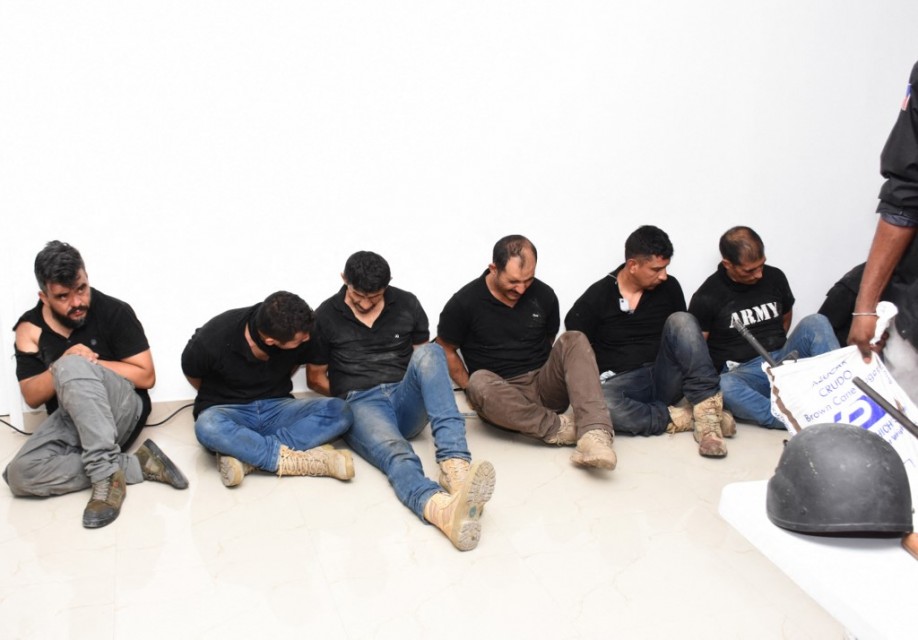
by Robenson Geffrard with Daxia Rojas in Washington and Amelie Baron in Paris
Agence France Presse
PORT-AU-PRINCE, Haiti (AFP) — A 28-member hit squad made up of Colombians and Americans murdered President Jovenel Moise, Haitian police say, but little is known about who masterminded the assassination and their motives as the investigation pressed on Friday.
Seventeen suspected assailants in Wednesday’s pre-dawn attack have been arrested, including 15 Colombians and two Americans of Haitian origin, the country’s police said Thursday at a press conference.
Three Colombian gunmen were killed by police, while eight members of the hit squad remain at large, Haiti’s police chief Leon Charles said, though the figures differed slightly from other official sources.
But little has been revealed on why gunmen broke into the president’s personal residence, riddling him with bullets and wounding his wife, Martine.
Authorities have caught the perpetrators of the attack, Leon said, but are now looking for the masterminds.
Police paraded some of the suspects before the media Thursday, along with Colombian passports and weapons they had seized.
Colombian police director on Friday said 17 Colombian ex-soldiers were thought to have been involved in the assassination, up from the six previously suspected.
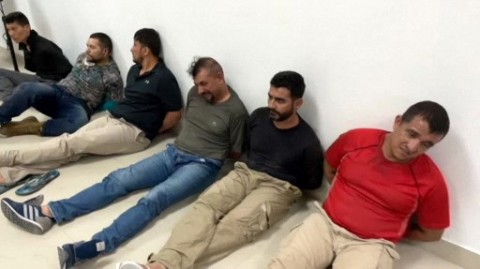
Two men who had died at the hands of Haitian police and 15 others “may have belonged to the national army” of Colombia, having left it between 2018 and 2020, general Jorge Luis Vargas told a press conference.
Colombian President Ivan Duque assured interim Haitian Prime Minister Claude Joseph of “the collaboration of his country in advancing the investigation” in a phone call Friday.
Colombian media reports on Friday said four of the former military suspects left Bogota on June 4 for Haiti’s neighbor the Dominican Republic, crossing the border on June 6.
Taiwan confirmed late Thursday that 11 of the suspects were arrested on its embassy grounds, after security discovered a group of armed men had broken into the courtyard of the property that had been shuttered “for safety reasons” after Moise’s murder.
State Department spokeswoman Jalina Porter said the United States was “certainly aware” of the arrests of the US citizens over the assassination but declined further comment, citing privacy laws.
Washington has already signaled its willingness to help the Haitian investigation, and White House spokeswoman Jen Psaki added Friday that senior FBI and other officials would be heading to the Caribbean as soon as possible.
– ‘We need to know’ –
After days of paralysis in the capital, Port-au-Prince saw the timid return of people to the streets, shops opening and the resumption of public transport on Friday morning but under a pall of apprehension.
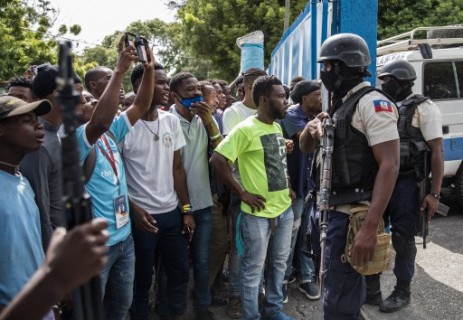
People scrambled to stock up on basic necessities at supermarkets and lined up at gas stations to buy propane used for cooking in anticipation of more days of instability.
“I don’t know what’s going to happen tomorrow or the day after in the country, so I am preparing for bad days ahead,” Port-au-Prince resident Marjory told AFP, as she and her husband stocked up on supplies at a store.
“I’m prioritizing everything that can last for many days.”
Gang violence, rife in the Caribbean nation, also picked up again on Friday, with clashes between groups paralyzing traffic on a major highway.
The city’s airport, shuttered in the wake of the attack, is expected to re-open Friday.
But questions continued to swirl in the country over who killed the president and why.
“Foreigners came to the country to perpetrate this crime. We, Haitians, are appalled,” a resident of the capital told AFP.
“We need to know who is behind this, their names, their backgrounds so that justice can be served,” he added.
Senior police officers, directly responsible for the security of the Haitian president, are in the hot seat and have been summoned to appear before the courts, said Port-au-Prince government commissioner Bed-Ford Claude on Thursday.
“If you are responsible for the security of the president, where were you? What did you do to avoid this fate for the president?” Claude said.
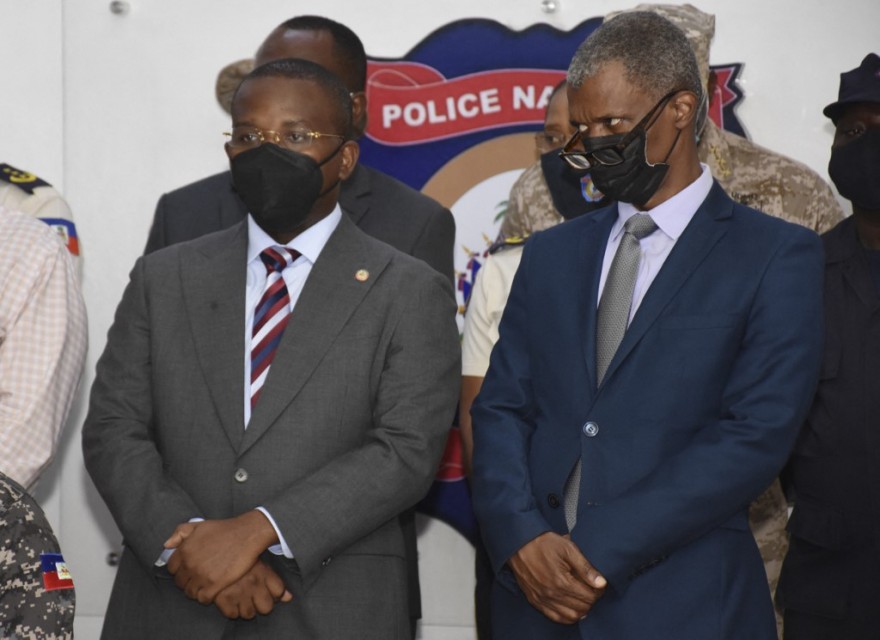
Others have speculated on the possible involvement of security agents in the killing, adding to the confusion.
“The president of the Republic, Jovenel Moise, was assassinated by his security agents,” former Haitian senator Steven Benoit said on Magik9 radio Friday.
“It is not Colombians who killed him. They were contracted by the Haitian state.”
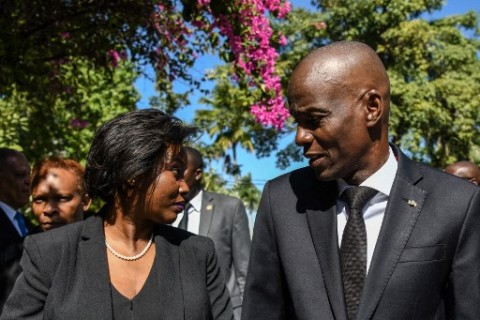
– Political chaos –
The attack has further destabilized the poorest country in the Americas, plagued by insecurity.
Two men are now vying to lead the country of 11 million people, more than half of whom are under age 20. There is no working parliament now.
One of Moise’s last acts as president on Monday was to appoint a new prime minister, Ariel Henry. He had not taken office when Moise was killed.
Several hours after the assassination, Henry’s predecessor, interim premier Claude Joseph, declared a national “state of siege” for 15 days and said he was now in charge.
While the opposition has accused Joseph of power-grabbing, the United Nations envoy to Haiti, Helen La Lime, has said he had authority because Henry had not been sworn in.
The country was already in the midst of in an institutional crisis: Moise had not organized an election since he came to power in early 2017 and as the country has had no parliament since January 2020, Moise had been ruling by decree.
© Agence France-Presse







